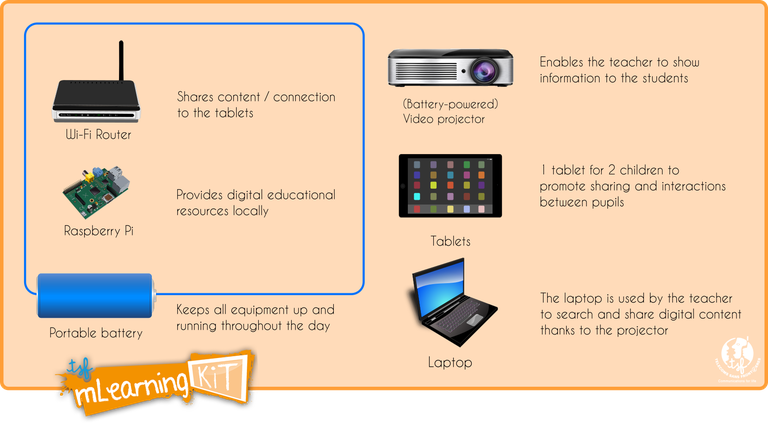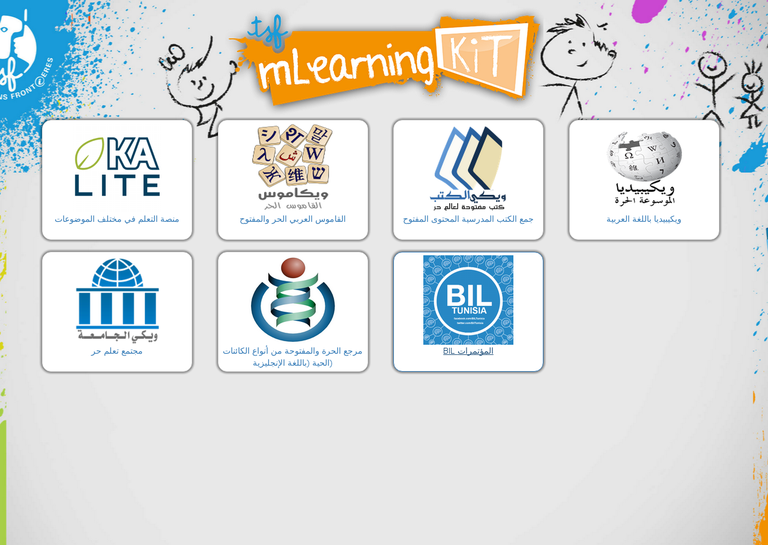TSF mLearning kit
Available languages:
- French
- Arabic
Autonomy: 1 day
1 tablet > 2 children
TSF is constantly looking to adapt its actions to the requirements of the challenging and demanding humanitarian field. Recent observations showed that there is a vital need to bridge the gap in children's education, notably for those who are victim of long-term emergencies.
Education is often considered as a long-term development issue, however in emergency situations, children still require education, so a more humanitarian approach is required. The importance of this humanitarian approach should not be neglected as children affected by war require not only schooling, but also an environment in which they can express themselves through creativity and sharing.
TSF's mLearning kit was created in this perspective.
An emergency education-focused kit
The kit consists in Android tablets, a low-consumption server of digital educational content (Raspberry Pi), a laptop and a Wi-Fi router
to share the connection and create the network. The whole kit is battery-powered to be able to run autonomously during 1 day.

Digital educational resources
Besides a set of apps selected for their relevance to scholar subjects, TSF has gathered online and offline digital resources which are localised according to the language of the beneficiary children. Currently the languages supported are French and Arabic (similar kits already exist for English or Spanish).
A connected tablet can be seen as "all-in-one" toolkit combining many diverse functionalities and that is easy to use thanks to the touchscreen interface.

New technlologies as a support to Education
TSF hopes to use its technical skills to partner with local educators and expert institutions in education to manage future classes and implement organisations in theses adverse conditions. Importantly, the aim of TSF's mLearning activities is not to replace traditional lessons, but rather to provide an additional and more playful and interactive means of learning in emergencies, where traditional school is not possible.
To make refugee education work, it is essential to integrate local educators who know about the cultural environment, children and their educational habits. The digital learning approach also familiarises children with digital devices as well as provoking intuitive sharing habits and a creative and interactive output. In order to provide the best support possible, it is important for TSF to collaborate with the fellow NGOs or consortia specialising in child welfare and protection
